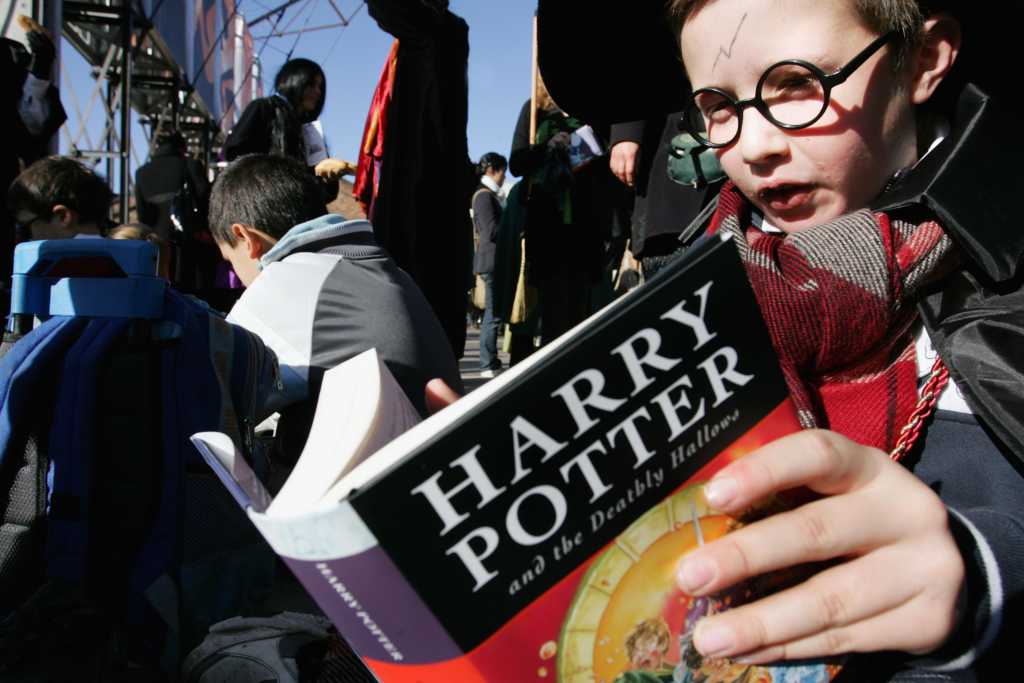A Catholic school in Nashville has hit the headlines after deciding to ban Harry Potter books from its library.
On August 28, the pastor of St. Edward Catholic School, Rev. Dan Reehil, sent an email to staff explaining his reasons for removing the popular fantasy novels.
“These books present magic as both good and evil, which is not true,” he wrote, according to the Guardian. “The curses and spells used in the books are actual curses and spells; which when read by a human being risk conjuring evil spirits into the presence of the person reading the texts.”
The books, which have sold a combined 400 million copies worldwide, do contain dark spiritual undertones. Some of the curses contained within the stories include “avada kedavra”, the “killing” curse; “crucio,” known as the “torture curse” and “imperio,” which allows wizards to possess and control others.
Rebecca Hammel, the superintendent of schools for the Catholic Diocese of Nashville, told the Tennessean that Reehil was well within his rights to take the books of the school’s shelves, despite the wider Catholic Church refusing to adopt an official position on the matter.
“Each pastor has canonical authority to make such decisions for his parish school,” Hammel said. “He’s well within his authority to act in that manner.”
Hammel added that the Catholic Church encourages parents to be the primary teachers and influencers of their children.
“Should parents deem that this or any other media to be appropriate we would hope that they would just guide their sons and daughters to understand the content through the lens of our faith,” she explained.
“We really don’t get into censorship in such selections other than making sure that what we put in our school libraries is age-appropriate materials for our classrooms.”
In response to the news, the Daily Wire’s Matt Walsh suggested that the presence of some Harry Potter books is unlikely to cause school children to become possessed. For that assertion, he said he received “many outraged emails.”
A quick look at his Twitter mentions showed that reactions to the story were mixed.
“It’s all about intention,” one person noted. “The series was a biblical allegory, a Christian allegory, which is obvious and confirmed by the author. Loyalty, goodness, decency, friendship, generosity, and LOVE…winning out over the unrelenting forces of evil.”
“I didn’t even know this was still a thing,” another added. “My parents didn’t let me and my sister read/watch Harry Potter, but eventually they did let us once they realized the controversy was dumb.”
Others expressed concern over the spiritual darkness portrayed in the series.
“Harry Potter… not a fan,” wrote one user. “I choose not to let my younger kids watch the movies or read the books. I trust an exorcist’s warning over my own opinion any day.”
Exorcist weighs in
Speaking to Catholic News Agency, a priest and exorcist of the Archdiocese of Washington, Monsignor Charles Pope, said it was “always good to err on the side of caution in these matters.”
“I think that in times like these we need to be extra cautious,” he added, noting that “as a general rule I’d support” the ban. Pope did, however, urge that parents should take primary responsibility for the material their children are consuming.
“Every individual parent would have to work with their own kids on these matters,” he said.
Though the current pope appears to have no issue with the novel, the Catholic Church has not always been supportive of Harry Potter.
Shortly after the release of J.K. Rowling’s second installment, “The Chamber of Secrets,” former Pope Benedict, who was at that time a Cardinal, wrote in a 2003 letter that the book contained “subtle seductions” capable of corrupting young Christians, according to Reuters.
In 2011, the Vatican newspaper warmly reviewed the final movie in the series, “Harry Potter and the Deathly Hallows: Part 2.”



